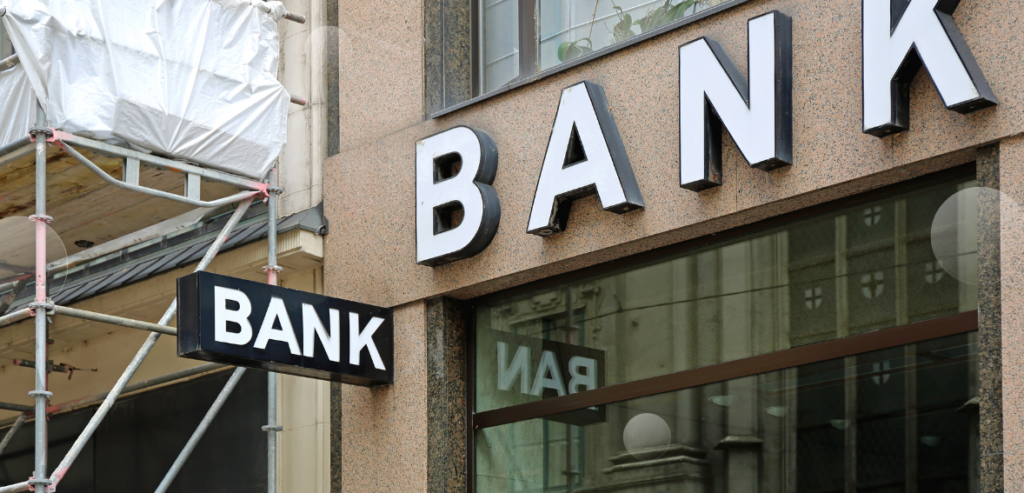Millennials between 18 and 34 are a significant market segment for banks and other financial institutions to attract and retain. More than 83 million millennials are now in the U.S., representing one-quarter of the country’s population and a larger share than baby boomers. Most millennials have spent their entire lives with technology and have very different desires and demands regarding financial services than previous generations.
What is the key to attracting and keeping pace with millennial’s financial services? Researchers say it offers better services, products, and experience than its competitors.
Millennial’s Financial Services – Bias To Digital Services
Research firm CCG Catalyst conducted an extensive survey of millennial consumers to learn more about how they use banking services and what they want from a financial institution. With a reputation for living on their phones, it’s unsurprising that the study found millennials prefer digital services. 44% said they send money digitally, 68% use online banking, and 39% use remote deposit capture for checks.
Still, the survey found that millennials still use traditional services: 46% also use checks. Many also regularly use ATMs and put money away in a savings account. While millennials use traditional services, they don’t want them to be average; they want them to be better. Millennials seek premium features like no fees, high-interest rates, and transparency.
The bottom line of this survey is that while millennials want more automation from their financial institutions and greater control, they still want a human connection when necessary.
What Makes Millennials Switch Financial Institutions?
A recent research study by Harris Poll asked Americans about their perceptions of banks and what would make them conduct business with one institution over another. The study found that 83% of millennials would switch to a different financial institution if it offered better rewards, such as cash back on purchases or a high-interest rate on a checking account. 65% of millennials would consider switching to a smaller credit union or bank if it offered mobile services. Almost half of millennials also said choosing a locally owned institution over a national chain is essential.
Not surprisingly, 93% of millennials said no-fee banking is essential when choosing a financial institution. While a convenient location is almost as important, millennials are more likely to sacrifice their area if the institution offers online tools.
What Are Millennial Entrepreneurs Looking for?

Despite more student loan debt than other generations, stagnant wage growth, and a higher cost of living, millennials are optimistic about finances, and a growing number are starting their own business. 49% of millennials want to become entrepreneurs in the next three years, and over half would quit their jobs in the next six months with the right resources.
The problem is that these “right resources” are challenging to find. Over 40% of millennials feel that major financial institutions are unlikely to give them a small business loan due to their age, forcing many to rely on personal credit rather than business loans.
Financial institutions are in an excellent position to help millennials close this gap toward owning a business. One survey found that three-quarters of millennials will pay more for financial services and products to ensure the success of their business. To get there, financial institutions need a long-term approach to guide millennials toward economic stability and greater availability of mobile tools and technology. Millennials don’t just need greater availability of small business banking services; they also demand more convenient and faster lending experiences.
In today’s fast-paced digital era, banks are constantly evolving to meet consumers’ changing needs and preferences, particularly the millennial generation. Born between the early 1980s and mid-1990s, millennials have emerged as a significant demographic segment, wielding considerable influence over various industries, including banking.
Challenges Faced by Traditional Banks

While adapting to the demands of millennials is essential for banks to remain competitive, they often encounter various challenges along the way.
Resistance to Change
Traditional banks may need more support for digital transformation initiatives from legacy systems, outdated processes, and organizational culture. Overcoming these barriers requires a commitment to innovation and a willingness to embrace change at all levels of the organization.
Competition from Fintech Startups
The rise of fintech startups poses a significant threat to traditional banks, as these agile and tech-driven companies are adept at meeting the evolving needs of millennials. To stay ahead of the competition, banks must foster a culture of innovation and agility and leverage partnerships or acquisitions to integrate fintech solutions into their offerings.
Strategies Implemented by Banks
To address the challenges posed by millennials’ changing preferences, banks are implementing various strategies to enhance customer engagement and satisfaction.
Digital Transformation
Banks invest heavily in digital transformation initiatives to modernize their operations and streamline customer interactions. By digitizing processes, reducing paperwork, and offering omnichannel experiences, banks can improve efficiency and deliver superior service to millennials.
Enhancing Customer Experience
In addition to digital channels, banks focus on enhancing the overall customer experience by providing personalized support and proactive communication. Whether through AI-powered chatbots or dedicated relationship managers, banks aim to build long-term relationships with millennial customers based on trust and transparency.
Technological Innovations
Technological advancements play a crucial role in shaping the future of banking and meeting the evolving needs of millennials.
Mobile Banking Apps
Mobile banking apps have become indispensable tools for millennials, offering features such as real-time account access, bill payments, and budgeting tools. Banks continually enhance their mobile apps with new features and functionalities to provide a seamless banking experience.
AI and Chatbots
AI-powered chatbots are revolutionizing customer service in the banking industry, providing instant assistance and personalized recommendations to users. Banks can deliver highly responsive and efficient customer support round the clock by leveraging natural language processing and machine learning algorithms.
Social Responsibility and Sustainability
Millennials are increasingly conscious of social and environmental issues and expect the companies they engage with to share their values.
Ethical Investing
Banks respond to this trend by offering ethical investing options, such as sustainable funds and socially responsible portfolios. By aligning their investment strategies with millennial values, banks can attract socially conscious customers and drive positive societal change.
Community Engagement Initiatives
Furthermore, banks are actively involved in community engagement initiatives, supporting local causes, and volunteering efforts. By demonstrating a commitment to social responsibility, banks can foster goodwill and loyalty among millennial customers who value corporate citizenship.
Financial Education Initiatives
In addition to providing financial products and services, banks are prioritizing financial education initiatives to empower millennials with the knowledge and skills needed to make informed financial decisions.
Online Resources and Tools
Banks are developing educational resources like articles, videos, and interactive tools to help millennials improve their financial literacy and achieve their long-term goals. By offering accessible and engaging content, banks can equip millennials with the necessary skills to navigate complex financial landscapes effectively.
Educational Workshops
Furthermore, banks organize educational workshops and seminars on budgeting, investing, and debt management. These events provide millennials with valuable insights and practical strategies for managing their finances responsibly.
Conclusion
In conclusion, banks are adapting to the demands of millennials by embracing digital transformation, enhancing customer experience, and promoting social responsibility. By leveraging technology, innovation, and a customer-centric approach, banks can stay relevant in an increasingly competitive landscape and meet the evolving needs of today’s generation.
FAQs
How are banks catering to the digital preferences of millennials?
Banks invest in mobile banking apps, online account management, and contactless payment options to provide seamless digital experiences.
What challenges do traditional banks face in adapting to millennials' preferences?
Traditional banks may encounter resistance to change and competition from fintech startups, which may require them to innovate and modernize their operations.
What role does technology play in shaping the future of banking?
Technology like AI and chatbots enables banks to deliver personalized services, enhance customer engagement, and streamline operations.
How are banks addressing the social and environmental concerns of millennials?
Banks offer ethical investing options and engage in community initiatives to demonstrate their commitment to social responsibility.
What resources are available for millennials to improve their financial literacy?
Banks provide online resources, educational tools, and workshops to empower millennials with the knowledge and skills to make informed financial decisions.

